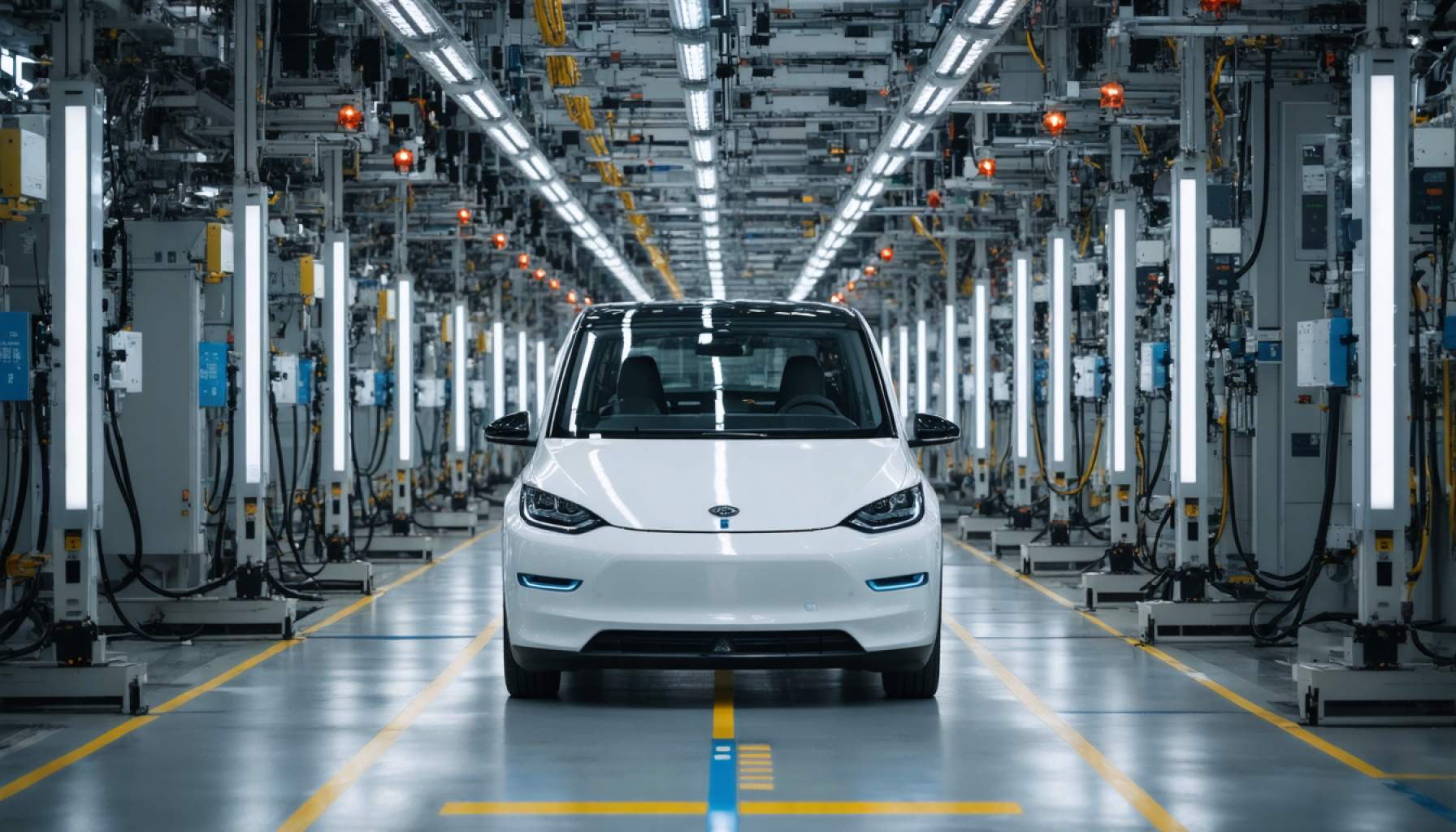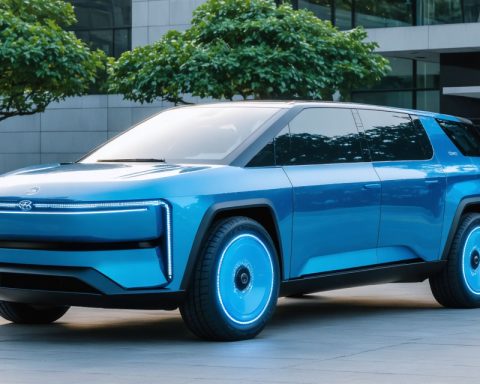- China’s electric vehicle (EV) market is set for transformation amidst fierce competition and price wars.
- The government plans to implement regulatory enforcements to ensure market balance and sustainability.
- Zheng Bei of the National Development and Reform Commission leads efforts to recalibrate industry norms.
- Only three EV makers in China report profitability, highlighting the urgent need for market reforms.
- Upcoming directives aim to eliminate unsustainable pricing and misinformation tactics among EV companies.
- China anticipates a robust growth in EV sales to 16.1 million units, stressing the need for responsible expansion.
- The initiative emphasizes ethical innovation and sustainable competition for long-term market prosperity.
China’s vibrant electric vehicle (EV) market is on the brink of a transformative leap. Envision a sprawling market, crackling with ambition, innovation, and competition so fierce, it’s palpable. Yet, amid this electrifying chase, many of its players risk veering into chaos, as aggressive price wars threaten to erode the industry’s integrity and ultimately its prosperity.
The Chinese government, sensing the tremors beneath this dynamic landscape, has sounded the clarion call for order and discipline. Determined to dismantle the specter of undercutting and marketing chicanery, China promises sweeping regulatory enforcements that aim to restore balance and sustainability. This sweeping initiative comes directly from Zheng Bei, a noteworthy authority figure in the National Development and Reform Commission, who is set on recalibrating industry norms.
With just three of the multitude of EV makers in the world’s largest auto market claiming profitability, the urgency for reform cannot be overstated. Disparities have surfaced as companies resort to slashing prices unsustainably and flooding the market with misinformation to sway consumer opinion and diminish rival brands. The government’s forthcoming directives signal the dawn of a new, fairer playing field. Rigorous monitoring and a call for self-regulation are at the forefront of this reformation, poised to shield both consumers and ethical companies from the predatory practices that imperil them.
A bold vision has been laid out; the unmistakable urgency to fetter unwieldy and ruthless competition accompanies China’s exponential EV sales projections. With a leap to 16.1 million units this year, a staggering 3.5% increase, comes the realization that with great volume comes the necessity of responsible growth.
Zheng remains tight-lipped about specific penalties, but his message resounds: non-compliance will not go unchecked. The market waits, abuzz with speculation on how these sweeping changes will reshape the landscape for the myriad of companies jockeying for position in an increasingly crowded space.
As the dragon roars, the road ahead is fraught with challenges, but it is also lined with opportunities for those ready to innovate ethically and sustainably. Stakeholders and consumers alike should embrace this move, seeing it as an investment in a future where the electrifying promise of the EV market can be realized—full throttle, yet controlled.
China’s Regulatory Shake-Up in the EV Market: What It Means for the Future
Understanding the Current State of China’s EV Market
China’s electric vehicle (EV) market is undergoing dramatic transformation, with the government stepping in to curb rampant price wars and unethical practices. This shift is crucial as China drives toward a more stable and sustainable electric future.
Insight into China’s EV Market Dynamics
Aggressive Competition: The Chinese EV market is characterized by intense competition, with many companies engaging in price wars to capture market share. This has led to unsustainable practices, provoking government intervention.
Regulatory Reforms: Zheng Bei’s leadership in the National Development and Reform Commission marks the beginning of regulatory changes aimed at stabilizing the market. These reforms are intended to create a balanced environment that rewards ethical business practices.
How-To Stay Ahead in the EV Industry
1. Understand New Regulations: It’s essential for companies to stay informed about new policies and adapt their strategies accordingly.
2. Focus on Innovation and Quality: Rather than competing on price alone, businesses should invest in R&D to enhance their product offerings.
3. Engage in Ethical Marketing: Build brand reputation by maintaining transparency and honesty in marketing strategies.
Real-World Use Cases and Market Trends
– Collaborative Innovation: Companies like BYD and NIO are exploring partnerships to leverage shared technology and reduce costs, reflecting a broader industry trend toward collaboration.
– Investment in Sustainable Technology: Emphasizing sustainable practices, some manufacturers are integrating renewable energy sources in their production processes.
Predictions and Insights
– Industry Consolidation: Experts predict a future where consolidation will occur, with strong, ethical players absorbing or outpacing smaller, less sustainable competitors.
– Growth Potential: Despite potential upheavals, the EV market is set to grow, with projections of 16.1 million units sold, indicating robust consumer interest.
Pros and Cons Overview
Pros:
– Increased regulation will stabilize the market and encourage fair competition.
– Ethical practices can lead to long-term brand loyalty and consumer trust.
Cons:
– Stricter regulations may increase operational costs in the short term.
– Companies accustomed to aggressive strategies may initially struggle to adapt.
Recommendations for Stakeholders
– Align Business Practices with Regulations: Ensure compliance with new government directives to avoid penalties and enhance brand reputation.
– Invest in Sustainable Innovations: Capitalize on technological advancements to differentiate offerings and improve sustainability.
– Foster Resilient Partnerships: Collaborate with other industry players to share resources, knowledge, and technologies.
Conclusion: The Path Forward
China’s EV market is at a pivotal juncture. Companies poised to embrace ethical practices and innovative growth strategies will lead the charge into the future. As regulations tighten, stakeholders must adapt quickly to maintain competitiveness and ensure the industry’s prosperity.
For more insights into global automotive trends, visit National Development and Reform Commission.














